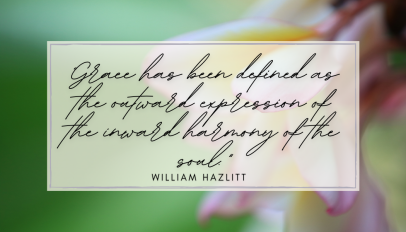Biblical Bites: Recipes Inspired by Scripture
Inspired by the pages of the Bible, today we embark on a tasty adventure, where the ingredients are seasoned with love, faith, and a dash of heavenly inspiration. Join us as we use the Bible as our guide, and sanction the kitchen to be our atelier, sharing recipes that bring the messages found in the Good Book to life on our plates.

First Miracle Spiced Wine
John 2:1-11:
In John 2:1-11, we witness the momentous occasion where Jesus performed His first miracle by turning water into wine at a wedding feast. This miraculous transformation beautifully parallels the way a delicious spiced wine can elevate any gathering, turning ordinary moments into extraordinary ones. Just as Jesus' divine touch made water into a delightfully rich wine, a glass of meticulously crafted spiced wine can add a touch of wonder and flavor to your own celebrations, creating moments of joy and connection.

Faithful Olive Tapenade
Genesis 8:11:
Genesis 8:11 describes a dove returning to Noah's ark with an olive leaf, symbolizing hope and the end of the flood. This act of faith, as demonstrated by the dove, resembles all faith. Including faith in the flavors and combination of ingredients of this Olive Tapenade appetizer, where the metamorphosis of bitter olives into a delicious dish reminds us that faith can turn adversity into something beautiful and satisfying.
Unleavened Bread of Sincerity and Truth
1 Corinthians 5:8:
In 1 Corinthians 5:8, the Apostle Paul exhorts the Corinthians to celebrate the festival with "unleavened bread of sincerity and truth." This metaphorical use of unleavened bread underscores the idea that, just as unleavened bread is free from impurities, Christians should approach their faith with sincerity and truth, ensuring their spiritual lives remain untainted by hypocrisy and falsehood.
Mount of Olives Olive Oil and Herb Flatbread
Luke 21:37:
In Luke 21:37, it is written that Jesus spent time teaching on the Mount of Olives. This sacred location, known for its olive groves, carries deep spiritual significance. Furthermore, The Mount of Olives has a connection to olive oil, which plays a remarkable role in Mediterranean cuisine. This flatbread appetizer captures the essence of the spiritual connection, as it is a delightful dish that features the divine flavors of olive oil and aromatic herbs, symbolizing both the physical and spiritual nourishment associated with the Mount of Olives, all while paying homage to the rich history by offering a delectable taste of the region’s culinary traditions.
Nutty Fig of the Promised Land
Deuteronomy 8:8:
Deuteronomy 8:8 vividly details the lavish Promised Land as one filled with "wheat, barley, vines, fig trees, pomegranates, olive oil, and honey." Through the harmonious fusion of wholesome ingredients, this nutty fig appetizer reflects the historical bounty of the land and celebrates promises of abundance and prosperity.

God’s Protection Bitter Herb Salad
Exodus 12:8:
Exodus 12:8 instructs the Israelites to eat the Passover lamb with bitter herbs, illustrating the hardships of slavery and the bitterness of the Israelites' journey to freedom. Much like this symbolic act of remembrance, a bitter salad serves as a powerful reminder of God's protection during the Passover. It signifies the contrast between the bitterness of the past and the promise of a better, liberated future, where God's care and guidance are ever-present.
Birthright Lentil Stew
Genesis 25:29-34:
In Genesis 25:29-34, Esau's hasty decision to exchange his birthright for a dish of lentil stew demonstrates the significance of the flavors within the Scripture. The savory lentil stew represents the allure of immediate, worldly pleasures, much like Esau's momentary desire for a delicious meal. This story serves as a cautionary tale, reminding us that the inviting flavors of life should not lead us to sacrifice our long-term blessings or spiritual birthright for fleeting indulgences. Don’t let that stop you from enjoying this tempting stew, but appreciate the imperative wisdom it represents.
Holy Matrimony Barley Soup
Numbers 5:15:
Numbers 5:15 references barley in the context of a jealousy offering within marriage. Barley, in this verse, symbolizes the sustenance and fertility of a union. Just as barley holds value in this scriptural context, this delicious barley soup serves as a representation of the nourishment and strength that a holy matrimony can offer, emphasizing that the sacred bond of marriage provides sustenance and fertility to a loving partnership.
Lamb Among the Wolves Stew
Luke 10:1-3:
In Luke 10:1-3, Jesus sends out his disciples as "lambs among wolves," alluding to the vulnerability and the challenges they will face. Just as these disciples were entrusted with a divine mission, this appetizing lamb stew can serve as a metaphor for nourishment and sustenance, illustrating the need for strength and resilience while facing the world's adversities, much like the disciples' mission in a difficult environment.
Isaac’s Venison Stew
Genesis 27:2-4:
In Genesis 27:2-4, Isaac, aging and desiring a flavorful meal, instructs his son Esau to prepare him some venison stew. This passage reflects Isaac's taste for venison, building a bridge to the recipe for the venison stew we share with you. Preparing such a dish celebrates Isaac's favorite dish, and allows you to savor a taste of the past and enjoy a hearty, flavorful meal that resonates with tradition.

Eternal Harvest Casserole
James 3:18:
James 3:18 speaks of the "harvest of righteousness" sown in peace. This concept beautifully aligns with the notion of an eternal harvest, highlighting the enduring yield of virtuous actions and goodwill. This vegetable casserole, prepared with the plenitude of nature's blessings, mirrors this sentiment, offering a taste of earthly generosity while reminding us of the eternal harvest of righteousness that flourishes through kindness and harmony.
Song of Songs Charoset
Song of Songs 2:2-5; 4:13-14:
The poetic verses found in Song of Songs 2:2-5 and 4:13-14 describe the sweet and fragrant delights of love, by relying upon the fruits of the land. Just as these verses evoke the essence of passion and sweetness, this Charoset made with luscious Medjool dates, the zest of oranges, and the rich texture of almonds and walnuts perfectly captures the romantic and sensual undertones in the Scriptures. This captivating blend of ingredients, inspired by Biblical imagery, serves as a delightful reminder of the abundant and rich experiences love can offer, both in taste and in life.
Plentiful Harvest Roasted Vegetables
Psalm 67:6:
Psalm 67:6 speaks of how "the land yields its harvest." This verse aligns with the abundance of nature's bounty, much like a plentiful harvest. Just as the land generously provides, this roasted vegetable side dish, brimming with the flavors of freshly harvested produce, honors the gifts and blessings that God provides for us here on Earth.

He is the Lamb of God Roast
John 1:29:
John 1:29 depicts Jesus as the "Lamb of God who takes away the sin of the world." This expression connects to the tradition of a lamb roast, where the lamb has historically spoken to tenderness, purity, and sacrifice. When you prepare this lamb roast, you are actively partaking in an ancient custom that reflects the spiritual significance of John 1:29, as we savor the tender, pure essence of the lamb, reminiscent of the Lamb of God who brings redemption to the world.
Keeping the Sabbath Lamb Kebabs
Numbers 28:9-10:
Numbers 28:9-10 outlines the Sabbath offerings of lambs to the Lord. This passage underscores the sacred observance of the Sabbath in Jewish tradition. When you enjoy these lamb kebabs, you can recollect the religious traditions and reverence that surround the origins of our faith. This savory meal blends a delicious culinary experience with a meaningful spiritual connection.
Filling Breaded Cod
Matthew 14:13-21:
The story of feeding the 5000 in Matthew 14:13-21, where Jesus multiplied a small amount of bread and fish to feed a multitude, highlights the miraculous abundance that can arise from meager resources. In a sense, this simple yet tasty dish echoes the flavor-filled and satisfying transformation of basic ingredients through the artful combination of breadcrumbs and seasonings.

Flowing Milk and Honey Pudding
Deuteronomy 6:3:
Deuteronomy 6:3 encourages the faithful to follow the commandments of God, emphasizing the call to be obedient. This exquisitely sweet oat milk and honey pudding reminds us of the promising rewards of “a land flowing with milk and honey” that accompany faithful obedience. This yummy treat pleases the taste buds while denoting the divine guidance that leads to a life filled with spiritual richness and fulfillment.
Now it is Time to Get Cooking
Drawing upon nourishment from the Holy Book, these recipes blend faith, flavors, and the Word of God into a harmonious feast that is sure to tantalize your senses and soul; making mealtime a reminder of the blessings and stories that have shaped our faith. May you continue to find nourishment, both physical and spiritual, in the flavors that satisfy the palate and encourage you to stay true to the principles of faith. Bon appétit and God bless!
- Torrance Church of Christ



























